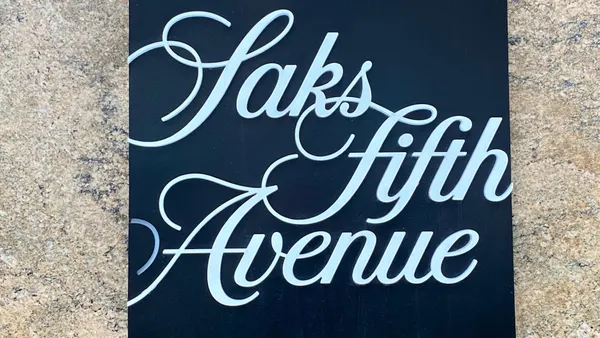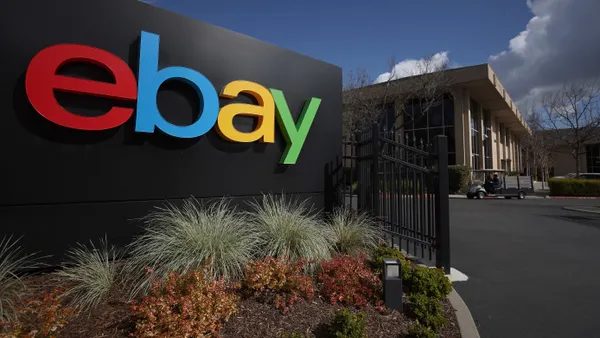Dive Brief:
- Early data from Adobe Analytics forecasts Black Friday online sales to hit between $8.9 billion and $10.6 billion, which represents growth of 20% to 42% year over year.
- The data firm expects Black Friday and Cyber Monday to become the two largest online sales days in history as consumers shift more spending toward e-commerce amid the COVID-19 pandemic. By Friday morning, Salesforce projected online sales in the U.S. for Black Friday to spike 15% to $11.9 billion.
- According to Adobe, Thanksgiving sales hit a record $5.1 billion, up 21.5% over 2019. Although that represents a new high, "it didn't come with the kind of aggressive growth rate we've seen with the start of the pandemic," Taylor Schreiner, director of Adobe Digital Insights, said in a statement.
Dive Insight:
Black Friday 2020 may be perhaps the most fraught, and well-plotted, of the shopping holiday's history.
Retailers couldn't ignore the frightening surge in COVID-19 cases and deaths around the U.S. Indeed, they have been planning for it since the early fall. Led by some of the largest in the industry, retailers have been spreading discounts across the month of November and earlier as they try to help consumers get more holiday shopping done earlier and online, and work to keep their stores from being vectors for the coronavirus.
The shift to online began well before Friday. In one sense, it began in October. That's when a flurry of sales events launched, many of them pegged to Amazon's Prime Day, which the e-commerce giant moved to mid-October.
Amazon delayed indefinitely its self-made holiday as it tried to keep up with a surge in demand following the COVID-19 lockdowns in the spring. With many analysts expecting consumers to begin holiday shopping earlier amid the pandemic, a sales event in October made good sense to keep up with shifting consumer behavior.
For large traditional retailers like Walmart and Target, those early online sales also presented a way to nudge consumers who weren't already planning to do so to move up some of their shopping, so as to keep stores from crowding in a holiday season with a cloud hanging over it.
"Prime Day marked the official start to the holiday season and created a halo effect as marketing and sales surged for the entire industry," Rob Garf, vice president of insights and strategy for Salesforce, said in a statement.
According to the NPD Group, by Wednesday dollar sales for the season grew by 13% compared to the same six weeks last year.
Consumers continued to favor the internet for their holiday shopping going into the big day. According to Salesforce research, digital sales in the U.S. spiked 72% year over year on Tuesday and were up 48% on Wednesday.
"Retailers of all sizes appear to have successfully moved shoppers to buy earlier in the season with early discounts and effective promotions," according to Adobe.
Many retailers opted to stay closed for Thanksgiving. Walmart and Target were among the first to announce they would stay dark for the holiday. For Walmart, it was the first time in more than three decades. Other major retailers that chose to close for Thanksgiving included Macy's, Home Depot, Best Buy, Kohl's, J.C. Penney and GameStop, leaving mostly drugstores and dollar stores that stayed open for turkey day, according to BestBlackFriday.com.
Some of those retailers that stayed closed for Thanksgiving encouraged consumers to shop online Thursday, marketing their curbside services. That seems to have worked. From Sunday through Thursday, 56% of online purchases were set to be received via curbside or expedited shipping, according to Adobe. By Friday, the analytics firm said that retailers that offered curbside pickup had a 31% higher conversion rate of traffic to their sites.














